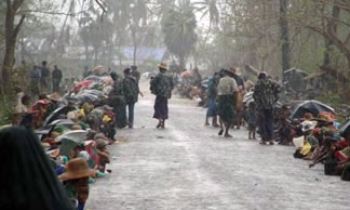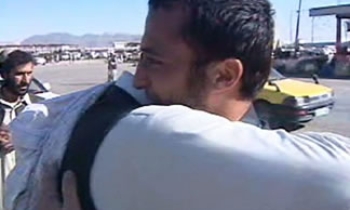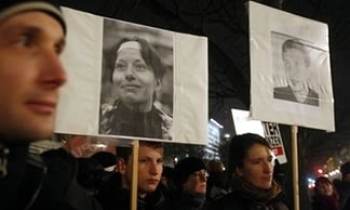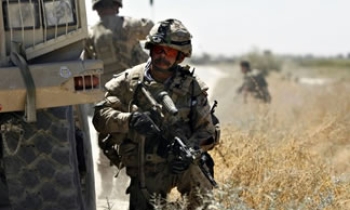WASHINGTON, Dec. 5 - Defense Secretary Donald H. Rumsfeld said Monday that news media organizations were focusing too much on casualties and mistakes by the military in Iraq and were failing to provide a full picture of the progress toward stabilizing the country.
"We've arrived at a strange time in this country where the worst about America and our military seems to so quickly be taken as truth by the press, and reported and spread around the world, often with little context and little scrutiny, let alone correction or accountability after the fact," he said in a speech at the Johns Hopkins School of Advanced International Studies.
His criticism of the press, a theme to which Mr. Rumsfeld returns frequently in public and private statements, came only a few days after the Pentagon acknowledged that it had paid Iraqi newspapers to publish news articles that presented a positive view of developments in Iraq.
That disclosure "has been pounded in the media," Mr. Rumsfeld said. "We don't know what the facts are yet."
Pentagon officials say commanders in Iraq have not answered questions about the program, including whether the articles were accurate and who was responsible for leaving off disclaimers required under Defense Department guidelines for articles that appeared in the Iraqi press. After his speech, Mr. Rumsfeld told reporters that he did not know when senior commanders in Iraq would clarify the matter.
He said blame for the propaganda program might rest with the Lincoln Group, the Washington-based public relations company that worked on the program under contract.
"Some people in the military signed a contract with a private contractor, and the private contractor is alleged to have written accurate stories, but paid someone in the media in Iraq to carry the story," he said. "Now the question is, what did the contractor - was he implementing the policy properly?"
His speech was part of an administration effort, begun last week with a speech by President Bush and the release of a blueprint titled "Victory in Iraq," to highlight progress in Iraq and shore up public support for American effort there.
Mr. Rumsfeld said he was often asked when he met with the troops why the news media did not report positive developments in Iraq. The Pentagon later provided partial transcripts of 10 meetings in which soldiers asked him about negative coverage in Iraq.
At his Johns Hopkins speech, Rumsfeld heard a different complaint. A student in the audience whether the administration believed before the 2003 invasion of Iraq that reconstructing the country would be "easy."
"There is no question there were people who believed that they would be met as liberators, and indeed they were for a period and still are in a number of parts of the country," Mr. Rumsfeld replied. "But anyone who had an optimistic view, I think has confronted reality. And it is clearly not easy. War is never easy. And you never heard a word like that out of my mouth, I don't believe."
The staff of the Senate Democratic leader, Harry Reid of Nevada, later released a transcript of a September 2002 interview Mr. Rumsfeld gave several reporters in which he said American troops had been welcomed after invading Afghanistan. "That's what would happen in Iraq," it quoted Mr. Rumsfeld as saying.









